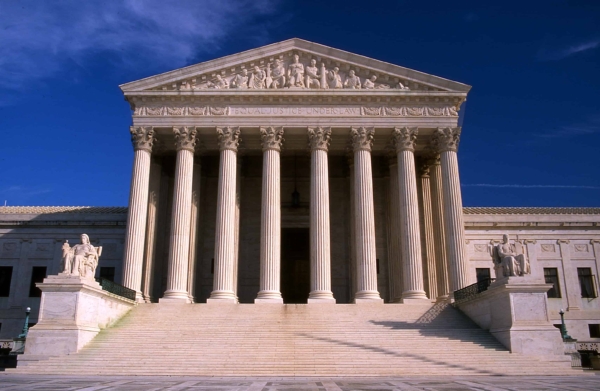Justices have an opportunity this term to ensure fair maps nationwide by striking down Republican and Democratic redistricting plans
The Southern Coalition for Social Justice (SCSJ), Campaign Legal Center (CLC) and University of Chicago Professor Nicholas Stephanopoulos represent the League of Women Voters of North Carolina and 12 individual North Carolina plaintiffs in the case, League of Women Voters of North Carolina v. Rucho. The Supreme Court will simultaneously hear a companion case, Common Cause v. Rucho, and it will hear the Maryland case, Benisek v. Lamone, this term.
“In North Carolina, Republican legislative leaders bragged that they were drawing a plan that advantaged Republicans to the maximum extent possible and discriminated against Democrats. This kind of outrageous behavior most certainly crosses the line of constitutionality, and if the Supreme Court does not intervene, our democracy will pay the price,” said Allison Riggs, senior voting rights attorney for the SCSJ.
If the Supreme Court rules that the state’s maps are unconstitutional, this victory could curtail the undemocratic practice of partisan gerrymandering nationwide. Last term, CLC’s Paul Smith argued Gill v. Whitford, a challenge to Wisconsin’s gerrymandered Assembly maps. The Supreme Court sent both the North Carolina and Wisconsin cases back to district court with clear instructions.
“Voters nationwide are ready for a ruling from the Supreme Court that finally declares that they come first, not self-interested politicians,” said Paul Smith, vice president at CLC.
“A supermajority of Americans – across ideological lines – want the Supreme Court to place limits on partisan gerrymandering. By striking down North Carolina and Maryland’s maps, the Supreme Court can send a message to the rest of the country that extreme partisan gerrymandering is unconstitutional, no matter which party does it. If the Supreme Court fails to set limits on this undemocratic practice, we will see a festival of copycat gerrymandering in 2020 the likes of which the country has never seen before.”
“Partisan gerrymandering in North Carolina has become so pervasive that the outcome of many elections is decided before a single vote is cast,” said Janet Hoy, co-president of the League of Women Voters of North Carolina. “We have full hope that the U.S. Supreme Court will rein in this undemocratic practice so that voters can have the fair elections they deserve and know that their vote matters.”
“The congressional districts across North Carolina are nothing less than a successful attempt to rig the system,” said Aaron Sarver, a plaintiff from Asheville, North Carolina. “If members of Congress can tell their Republican colleagues in Raleigh exactly which voters they want to ‘represent’ then we’re getting pretty close to telling people it’s not worth bothering to show up to vote because the election was decided the day the maps were drawn.”
With the case now to be decided this term, North Carolina voters could have fair and legal maps drawn in time to be used in the 2020 elections.
Read more about the case: Rucho v. League of Women Voters of North Carolina.

